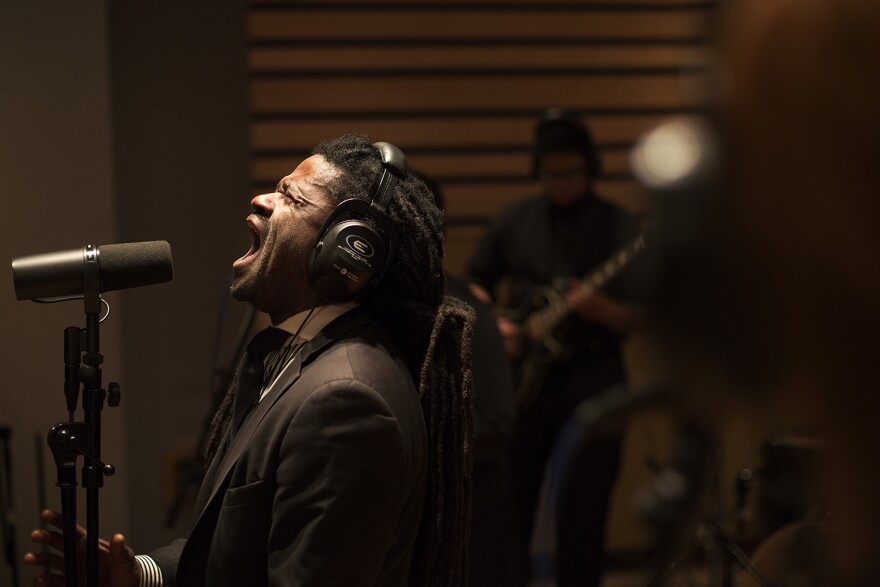The pulpit, streets full of protesters and a recording studio don’t have much in common. But for the Rev. Osagyefo Uhuru Sekou, these three environments offer the chance to spread a gospel of equality.
“What are the ways that we’re going to wrestle with saving the democracy? Music can do that; the pulpit can do that; and engaging in the rich tradition of civil disobedience can do that,” said Sekou.
Sekou and his band, The Holy Ghost, will release their debut album, “The Revolution Has Come,” on Jan. 31. The album mixes classic blues and gospel with the reverend’s social justice-focused lyrics, which draw on his years of experience in various social justice movements.
He led protests against the second Iraq war. He wrote eloquently about the death of Trayvon Martin at the hands of George Zimmerman. He was a fixture in the #BlackLivesMatter protests in Ferguson after the shooting death of Michael Brown.
“Ferguson and America gave me the blues. So I had the blues, so I had to sing,” Sekou said.

Sekou’s involvement in Black Lives Matter protests led to the friendships and recording sessions that culminated in “The Revolution Has Come.”
Friendship played as much a role in the album’s creation as protest work. Sekou co-wrote the album with Jay-Marie Hill from Oakland, Calif. The two met after a protest in Cleveland. Sekou helped Hill clean pepper spray from Hill's face.
“He helped me get it out of my eyes, and that was it. We didn’t really talk or anything,” said Hill. “He was just like this is how you do it, wash your cloths in cold water, and I was like cool!”
Months later, the two met again in Oakland through mutual friends. Hill played Sekou a newly composed song, which, said Sekou, brought him to tears. The pair then wrote 11 songs over six days. Hill described the album as “movement music.”

“You don’t just say any chant when you’re out at an action. People need to hear your messaging through the chants that you say. So similarly people need to know our messaging through the words that we say and through the feeling of the songs,” said Hill.
Lyrically, the album address issues of equality regarding gender, sexuality and race. One of Hill's songs deals with the death of Lamia Beard, a black trans woman of color.

After composing the album, Hill and Sekou regrouped in St. Louis to record the album at Extreme Institute by Nelly. The album features more than 30 area musicians and sound engineers, including Vintage Vinyl owner Tom “Papa” Ray, EI instructor and performer Loren Davis-Stroud, and guitarist Kennard Williams. Williams was brought on to the project after approaching Sekou at MoKaBee’s Coffeehouse in Tower Grove.
The album will be released by the St. Louis music and art collective FarFetched with support from India Arie’s manager Anasa Troutman.
The album will be available digitally Sun., Jan. 31 with a physical release to follow. The band will play at performance venue at 2720 Cherokee that same day.
Update: an earlier version of this story said Hill's song dealt with the death of Ashton O'Hara. The song was inspired by Lamia Beard.






